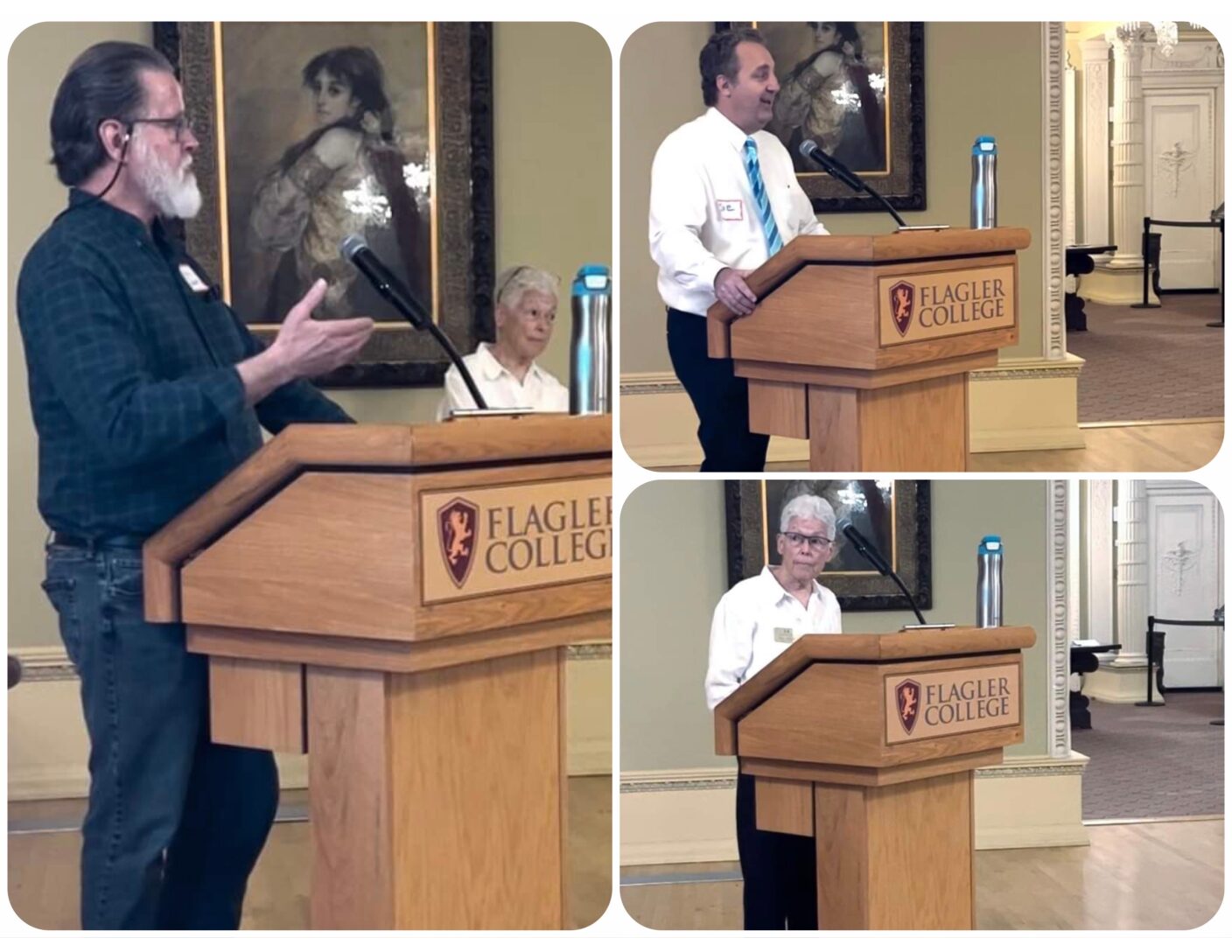By Chloe Smith
With home prices skyrocketing nationwide, St. Johns County residents are scrambling for answers to support their struggling community. Nonprofit leaders Ervin Bullock and Bill Lazar say it might take looking for unconventional solutions to deal with the ongoing issue.
Bullock, Lazar, and several other concerned community members recently met at Flagler College to discuss the local housing crisis impacting St. Johns County.
“We have a limitation as far as our capacity to house people,” said Joseph Cone, Assistant Health and Human Services Director at St. Johns County. “That’s what it comes down to. There’s a limit on the inventory.”
Bullock, board director of Compassionate St. Augustine, and Lazar, Executive Director of St. Johns Housing Partnership, proposed new solutions, including one that calls for involving local churches. Compassionate St. Augustine and the St. Johns Housing Partnership are nonprofit organizations dedicated to helping their community through action and promotion.
Over the last 12 months, the Case-Shiller U.S. National Home Price index has risen by 18.6%, the most substantial year-long growth in the history of the series. According to the National Housing Conference, housing costs are less affordable today than at any time within the last century. With St. Johns County already notorious for being the least affordable county of the eight counties in the area, lower and middle-income families within the community are hurting as they get priced out.
As of January 2023, St. Johns County homes are selling for a median price of $465,000, according to Redfin, which is considered unaffordable for those making the county’s median income. St. Augustine — one of America’s fastest-growing cities and the St. Johns County seat — has lacked affordable housing for years due to the high cost of living.
During the forum, Cone addressed why St. Augustine is especially struggling amid the national shortage of affordable housing.
“Because we’re the oldest city, you would think we would have a lot of infrastructure, we would have a lot of vacant buildings, but we don’t have much of it when it comes to housing,” said Cone. “We don’t really have much as far as what you see in a lot of other traditional southern towns.”
He said this poses significant challenges to economic development in St. Johns County.
Besides poor infrastructure, Lazar acknowledged another major factor contributing to the St. Johns County housing crisis: real estate investors.
With Hurricane Matthew, “a lot of the rental market just disappeared,” so investors took advantage, Lazar said. “They’re buying shelter like it’s a widget, and there’s going to be no shiny object three years down the road; they’re going to dump the property and move on to something else.”
He also mentioned that many of St. Johns County’s investors come from our own Flagler College due to the many parents investing in homes for their children who will soon live off campus.
As investors continue to take over the area, the remaining members of St. Johns County suffer. Residents are getting priced out, and those wanting to purchase a home are now being forced into the market for a rental.
Lazar said there are numerous difficulties of designing affordable housing, as developers need to rent or sell it for less than market rates, but it still costs the same as regular housing.
Fortunately, he and Bullock introduced a new form of action to tackle the crisis, which requires “churches looking at the land that they own and saying, why can’t we become involved in affordable housing,” said Lazar. Whether through selling, leasing, or donating, the land provided by local churches would give those who may be unable to afford the current home prices a long-term permanent solution.
Homelessness, another sizeable issue in St. Johns County, could also be improved with this solution, as it “brings people who have been homeless long-term into housing,” said Bullock.
She highlighted one of the ways the land could be used, using the Charter for Compassion webinar series, Housing is a Human Right. In this webinar, six groups across the country share how their solutions for creative communities and neighborhoods provided affordable, permanent, quality housing. But the possibilities regarding how to effectively use the land are endless.
Still, more than the diligence of these nonprofit leaders alone is needed to conquer the local housing crisis. Affordable housing has been a struggle within St. Johns County for several years, and those looking for solutions say it will take every member in the community to reduce the trend.
“You got to have government, builders, developers, and banks all agree to do it at the same time,” as well as members of the St. Johns County community, said Lazar.
To learn more about Bullock and Lazar’s new proposition, visit Charter for Compassion’s “Housing is a Human Right” webinar series at https://charterforcompassion.org/housing-is-a-human-right.



Be the first to comment on "St. Johns County discusses how to manage affordable housing crisis"